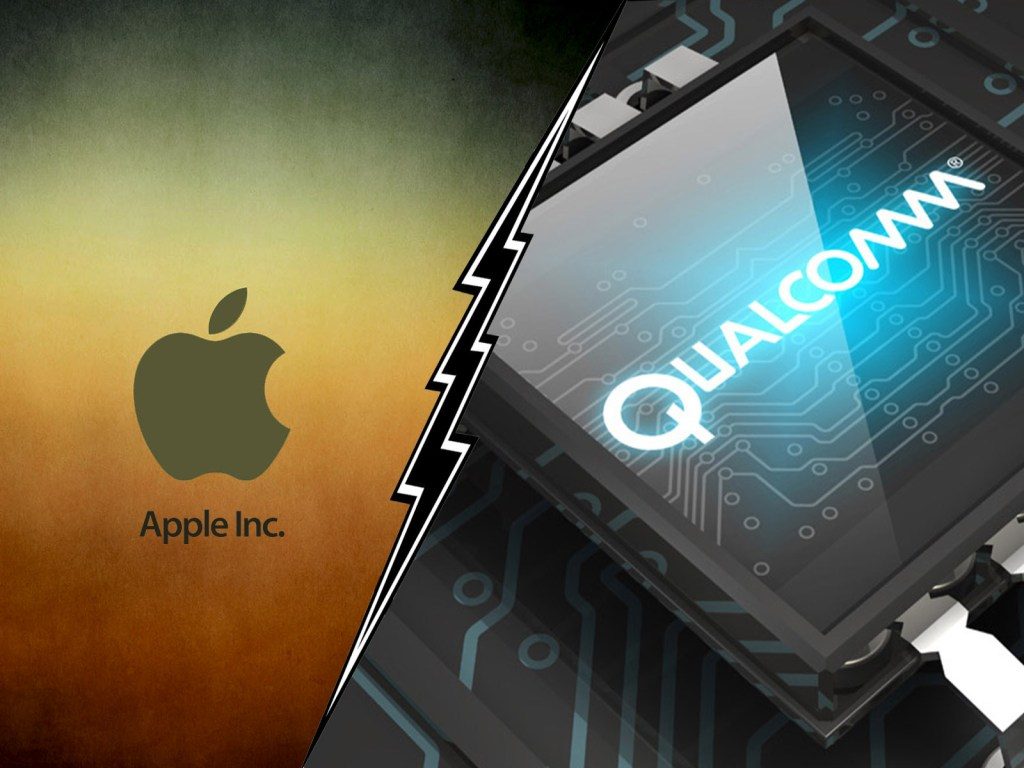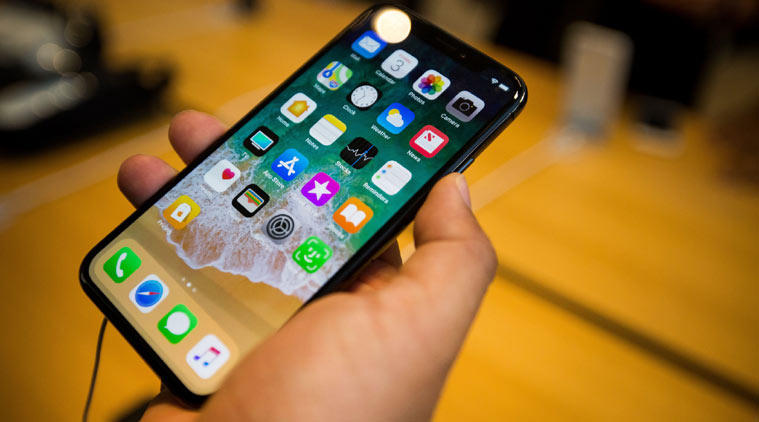
Qualcomm won an injunction that allows a ban on sales of some iPhone models in Germany, giving the chipmaker another weapon in its long and bitter licensing battle with Apple.

Qualcomm Inc won an injunction that allows a ban on sales of some iPhone models in Germany, giving the chipmaker another weapon in its long and bitter licensing battle with Apple Inc only 10 days after winning a similar judgment in China.
Most iPhones will stay on store shelves through Christmas, however. In order to block sales of any Apple products, Qualcomm would have to post a 668.4 million-euro ($765 million) bond to cover any losses if the ruling is reversed on appeal.
The Munich Regional Court ruled Thursday that Apple is infringing intellectual property related to a hardware energy-saving feature on the phones. The ban covers “at least” the variations of the iPhone 7, 8, and X, Presiding Judge Matthias Zigann said when delivering the judgment.
The ruling is the latest decision in a long-running global patent battle between the companies. San Diego, California-based Qualcomm said last week that the Fuzhou Intermediate People’s Court in China issued a similar order that applied to older iPhone 6s as well.
“Two respected courts in two different jurisdictions just in the past two weeks have now confirmed the value of Qualcomm’s patents and declared Apple an infringer, ordering a ban on iPhones in the important markets of Germany and China,” Don Rosenberg, an executive vice president and general counsel for Qualcomm, said in an emailed statement.
Apple said all iPhone models will be available in the shops of phone carriers and resellers, about 4,300 locations in Germany. During the appeal, Apple’s 15 own shops in the country won’t sell iPhone 7 and iPhone 8 models but iPhone XS, iPhone XS Max and iPhone XR will remain available, the company said in an emailed statement.
Qualcomm’s “tactics, in the courts and in their everyday business, are harming innovation and harming consumers,” Apple said. “Qualcomm insists on charging exorbitant fees based on work they didn’t do and they are being investigated by governments all around the world for their behaviour.” Rival chipmaker Intel Corp. called the case “another attempt to stifle competition.”
Qualcomm shares rose as much as 2.2 percent in US trading after the ruling. They were up 0.8 percent at 11:20 a.m. New York time.
The Munich court didn’t have to hear any witnesses on whether Apple really uses the protected technology, because the iPhone maker failed to sufficiently explain how its chips work. Apple had told the court it can’t disclose that because that would violate contracts with its suppliers.
“That wasn’t enough to fight the claims by Qualcomm,” Zigann said. “Under the rules of civil procedure, the result is that we had to assume that Qualcomm’s claims are accurate.”
The 668.4 million-euro bond represents the economic damage Apple may face if the ruling is enforced. The iPhone maker had asked the court to require 1.6 billion euros, but the judges cut this by 60 percent because Apple claimed the ban wouldn’t cover its latest models, Zigann said.
Qualcomm will post the required bonds to start the injunction “within a few days,” the company said Thursday in an emailed statement.
The two US companies are locked in a worldwide dispute over licensing fees Qualcomm charges for use of technology that the chipmaker says underpins all modern phone systems. Apple has argued its former supplier unfairly leverages its position as the biggest provider of chips for smartphones to force payment. Qualcomm has countered that Apple is using its intellectual property without paying for it.
Apple and Qualcomm are fighting over intellectual property covering wireless networks and devices. Apple accused Qualcomm of illegally charging too much for licenses. The chipmaker is using other patents that cover some aspects of the way phones work to attack back. It has used a common industry tactic of seeking bans on potentially infringing products to try to force a settlement.
Thursday’s ruling is the first win in Germany, Europe’s biggest economy, and the victory will add to Qualcomm’s leverage in the dispute. The chipmaker has filed 13 cases in the country, one of which has been rejected.
Source: Indian Express
